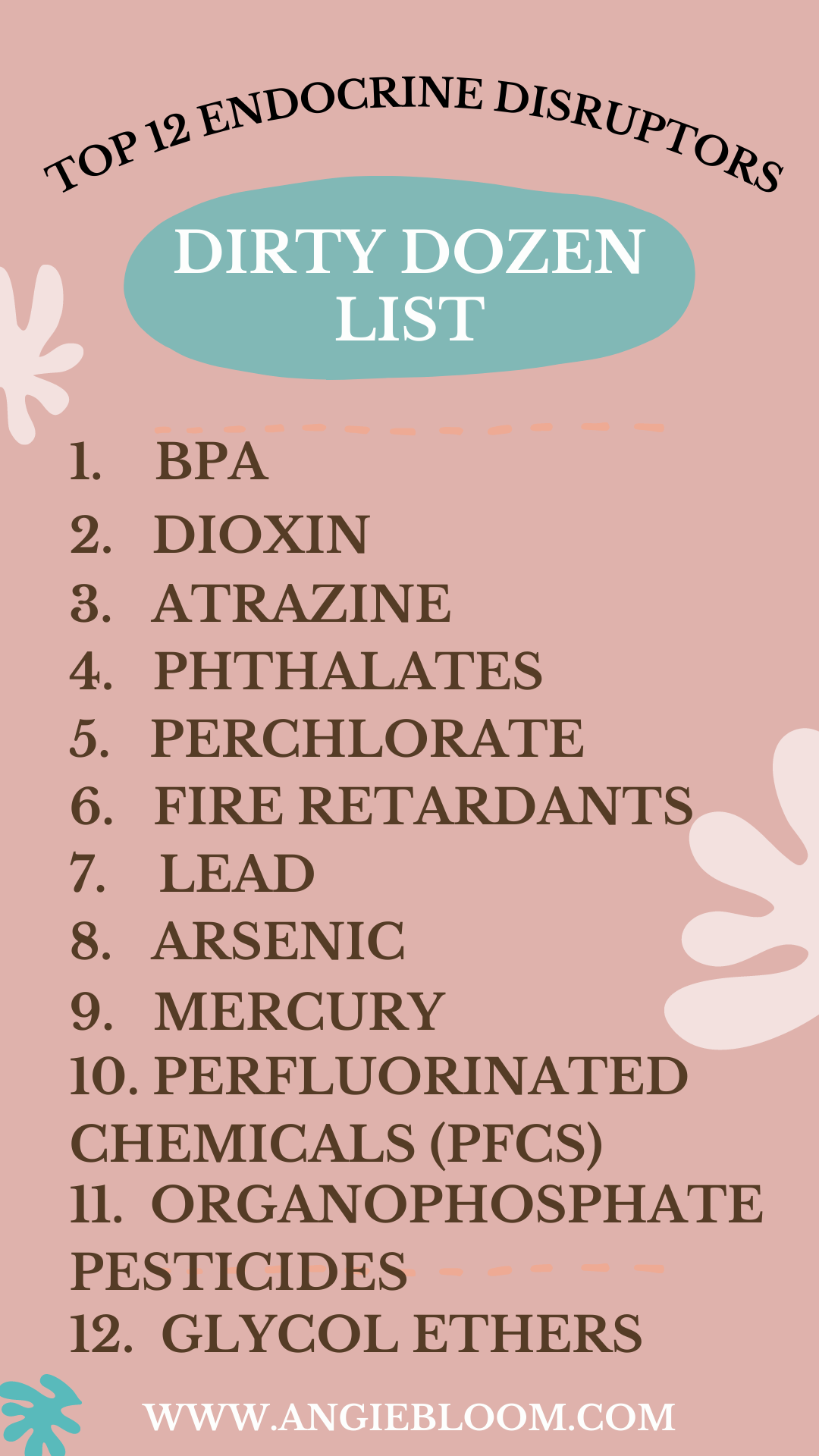These Chemicals Disrupt Your Endocrine System (Skin & Health)
It's a topic I don't like to think about, but is so important (and we really can't ignore)... the impact exposure to chemicals can have on our health.
It's a topic I don't like to think about, but is so important (and we really can't ignore)... the impact exposure to chemicals can have on our health.
I believe with all my heart, though, that the foundation for good skin health, starts from within. Nothing you use topically (face wash, moisturizer, or makeup) matters if your insides aren’t well. I’ve worked years on healing gut post treatments with SIBO, which continues to be a top priority with keeping my health in alignment.
That said, if what you’re using topically isn’t as high quality as the food you’re using to nourish your body with, you must know that damage is being done.
Topical items often contain endocrine disruptors.
There is no end to the tricks that endocrine disruptors can play on our bodies: increasing production of certain hormones; decreasing production of others; imitating hormones; turning one hormone into another; interfering with hormone signaling; telling cells to die prematurely; competing with essential nutrients; binding to essential hormones; accumulating in organs that produce hormones. (source)
Many of them our endocrine disruptors. The endocrine system is what controls and produces hormones throughout the body - not just estrogen and testosterone, but everything from cortisol to serotonin. This is especially important for those that experience IBS or Small Intestinal Overgrowth (SIBO), because hormones play a major role in motility. I experience many clients with out-of-whack thyroid hormones, which in turn they often end up developing SIBO.
It shows up in our daily lives as fatigue, anxiety, depression, poor skin, belly fat, cellulite, brain fog or constipation (and more). The problem is, if this endocrine disruption is left ignored, these seemingly ‘normal’ symptoms can turn into dangerous diseases, such as cancer, autoimmune disease, cardiovascular disease and dementia.
Endocrine disruption describes the impact of hormone-mimicking chemicals on our cells, organs and metabolism. Commonly referred to as Endocrine Disrupting Chemicals (EDCs), these toxic compounds closely resemble the estrogen that our bodies produce.
This is why they are known as ‘xenoestrogens.' Xenoestrogens bind to estrogen-receptor sites on our cells and must be eliminated from our body by the same pathways as the estrogen we produce naturally. The impact of xenoestrogens in our environment makes them hard to avoid and leads to high levels of estrogen in the body. In a healthy woman, estrogen is balanced by progesterone or testosterone in reference to men. Exposure to Endocrine Disrupting Chemicals leads to high levels of unopposed estrogen, a condition called estrogen dominance. Estrogen dominance can be a serious health risk that may cause troublesome symptoms and put us at risk of life-threatening diseases, including cancers, obesity, cardiovascular disease and autoimmune disorders.
I started by learning about the Dirty Dozen Endocrine Disruptors.
Endocrine disruptors are chemicals that may interfere with the body’s endocrine system and produce adverse developmental, reproductive, neurological, and immune effects in both humans and wildlife. (source)
It’s important to know if you’re experiencing the symptoms of endocrine disruption.
What are the Dirty Dozen Endocrine Disruptors?
Click HERE to save this list for later.
BPA
Dioxin
Atrazine
Phthalates
Perchlorate
Fire retardants
Lead
Arsenic
Mercury
Perfluorinated chemicals (PFCs)
Organophosphate pesticides
Glycol Ethers
Symptoms of high estrogen in women:
Weight gain — especially around the hips, waist and thighs
Depression and anxiety
Trouble sleeping
Poor memory and difficulty concentrating
Fatigue
Mood swings
Hair loss
Irregular periods and PMS
Fibrocystic breasts and uterine fibroids
Loss of sex drive
Swollen and tender breasts
Bloating
Endometriosis
PCOS
Cancer of the breast and uterus
Symptoms of high estrogen in men:
Infertility
Weight gain
Erectile dysfunction
Enlarged breasts
Depression
Fatigue
Prostate cancer
The first step in balancing estrogen is to eliminate exposure to endocrine-disrupting chemicals. Unfortunately, these compounds have such an impact in our every day lives that it would be nearly impossible to avoid them altogether. I've compiled a list that you can start to implement changes slowly and over time this will ADD up hugely for your health.
Common environmental sources of EDCs include:
Plastics
Pesticides
Fertilizers
Heavy Metals
Personal Care Products
Household Cleaners
Prescription Hormones
Hormones in Animal Products
Drinking Water
I suggest working on removing some of the EDCs with switching out some of your favorite personal care products to safer skincare and cosmetics, using a filtered water filter, drinking from a glass bottle as opposed to plastic, making sure your household cleaners are safer for you, reduce the amount of animal products you are eating or using, and be careful with fertilizers and pesticides you are using on and around your home.
Restoring optimal liver function is a key step to balancing hormones. In order for the estrogens and endocrine-disrupting chemicals that have been filtered by the liver to actually leave the body, the gut must be healthy as well. Leaky gut, dysbiosis and inflammation directly contribute to hormonal imbalance. I will touch more on this in an upcoming newsletter - you can sign up for updates here.
I have used products with those 12 things in them for years. We can’t go back and change anything, but we can take the acquired information and make a change. If you’d like to see my current skin routine, what I use daily that reduces my toxic load, click here.
If you are interested in learning more about what I shared with you or about safer beauty to help support you and beyond, please don't hesitate to drop me a line here.
Tips:
I am serious about taking good care of my skin and weekly, I get asked what my skincare routine looks like.
If you want a personalized skincare recommendation, fill out my skincare questionnaire, and I’ll email you back, or you can email at angie@angiebloom.com. I know the Beautycounter skincare and makeup lines best, but if I think products from other brands will work well for you, I’ll share those too - I like to keep it real here over at Angiebloom.com and if there are other products that would be a better fit for you, you better believe I will share that with you!.
Be sure to join my newsletter to get skincare and makeup tips emailed to you, plus, I’ll send you a code to save 20% off. And I always notify you first when there is a sale or promo happening with any of my favorite brands – click here to sign up!
To see all my beauty-related blog posts and product reviews, click here.
To join my Beautycounter Facebook group where I share product updates, tips and promos, click here. Feel free to post questions in there too – lots of people will share their experience!
If you’re interested in becoming a consultant, learn more here. We’d love to have you as part of our team.
Trending Post Here:
You might also like:





